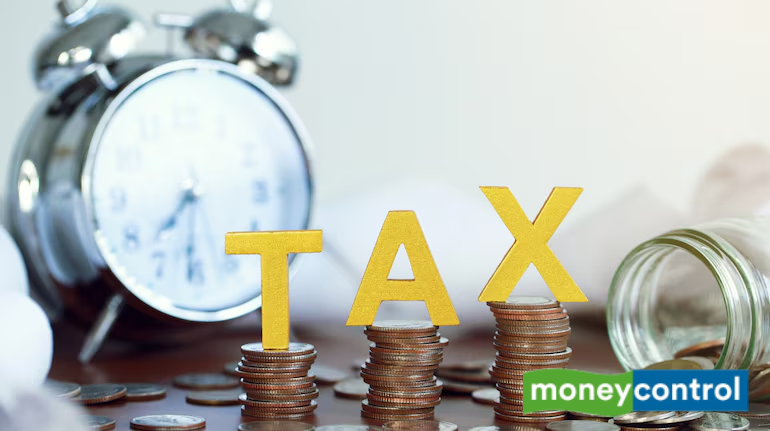Union Budget 2025: The government should focus on incentivising taxpayers by raising exemptions, revising tax slabs, enhancing deductions, and lowering LTCG and STCG rates.
The Union Budget 2025 should focus on empowering taxpayers by raising exemption limits, revising tax slabs, and enhancing Section 80C and 80D deductions.
As Budget 2025 draws near, India’s personal finance ecosystem is ready for a transformation. Despite boasting more than 7.5 crore individual taxpayers, with income tax forming a significant part of government revenue, this lot is neglected and reforms to incentivise compliance have become overdue for almost all categories of taxpayers.
The top 30 percent tax slab on income above Rs 10 lakh has remained constant since 2012; if we factor inflation, it should be Rs 21.3 lakh today. This highlights the gap between tax policy and economic realities. Also, about 60 percent of taxpayers use section 80C (of the Income Tax Act) for savings, but the existing limit of Rs 1.5 lakh, unchanged since 2014, does not align with contemporary financial needs.
Equity mutual funds received inflows to the tune of Rs 1.84 lakh crore in FY 2024. The majority of doctors are concentrated in metros, leaving rural communities deprived of basic facilities. As of 2024, just about 30 percent of India’s population had some form of health insurance, which shows how critical it is to incentivise the adoption of medical cover for citizens facing rising medical costs.
These numbers illustrate how badly we need revolutionary income tax and personal finance policy changes to put people on the path to wealth and growth. From a personal finance standpoint, here are the significant expectations from Budget 2025:
Income tax reforms
- The new regime’s basic exemption limit should be increased from the current Rs 3 lakh to Rs 5 lakh.
- The highest income tax slab of 30 percent on income above Rs 10 lakh (per the old regime) should be revised. Adjusting for 6 percent inflation, this should be raised to Rs 21.3 lakh in 2025.
- Under the new tax regime, the Rs 15 lakh slab should be raised to Rs 20.1 lakh.
- The section 80 C deduction limit per the old regime should be increased from Rs 1.5 lakh to 2.5 lakh to include a broader range of investments, such as ELSS, PPF, and NPS.
- Health insurance premium-linked deduction limits under section 80 D should be increased to Rs 50,000 for general individuals and Rs 70,000 for senior citizens. This should also be allowed under the new tax regime.
The proposed reforms, including raising the exemption limit to Rs 5 lakh, higher slabs, and increased standard deduction, would boost disposable income and savings. Raising the section 80 C limit to Rs 2.5 lakh will encourage investments in ELSS, PPF, and NPS. These changes can promote economic growth, tax compliance, and financial security.
Savings and investment incentives
- The annual exemption rate should be increased from Rs 1.25 to 2 lakh.
- The LTCG (long-term capital gains) tax rate should be brought down to 10 percent from the current 12.5 percent.
- The earlier short-term capital gains (STCG) taxation on equity funds at 15 percent should be restored.
- Interest exemption on bank fixed deposits for general and senior citizens should be increased from Rs 10,000 to 25,000 (under section 80 TTA), and Rs 50,000 to Rs 1 lakh (section 80 TTB), respectively.
- The tax deduction under section 24 B for interest paid on home loans should be re-evaluated and raised from Rs 2 to 3 lakh, in favour of home buyers.
Reducing LTCG and STCG rates would make investments more attractive and encourage long-term equity purchases. Increased section 80 TTA and B limits and home loan interest deductions would boost savings, and make homeownership more affordable.
Incentivise tax compliance
The government can implement various incentives to encourage compliance by offering benefits to taxpayers who submit their tax returns promptly. They could get financial incentives such as reduced health insurance premiums and interest rates, or faster loan approvals. Taxpayers may also receive priority access to government healthcare, cheaper utility bills, etc.
All eyes on Feb 1
Budget 2025 should focus on empowering taxpayers by raising exemptions, revising tax slabs, enhancing deductions, and lowering LTCG and STCG rates. This will enhance savings, improve tax compliance, and drive broader economic development.
The author is a Certified Financial Planner and founder, True North Finance, a Financial and Investment Planning Firm based in Pune.
Disclaimer: The views expressed by experts on Moneycontrol are their own and not those of the website or its management. Moneycontrol advises users to check with certified experts before taking any investment decisions.
LT COL ROCHAK BAKSHI (RETD) is Founder, True North Finance, a Financial and Investment Planning Firm based in Pune.


